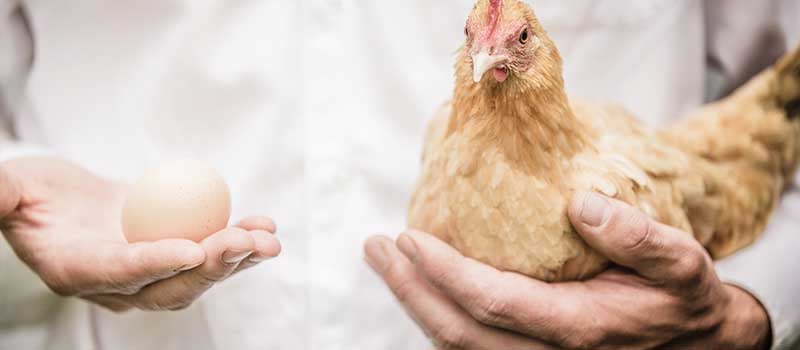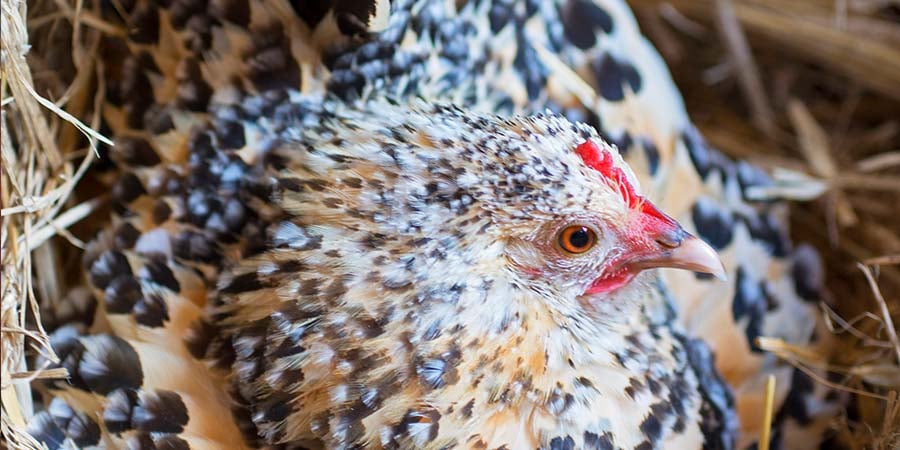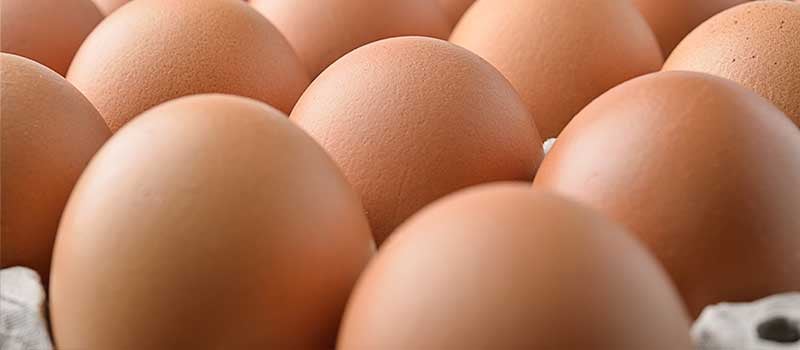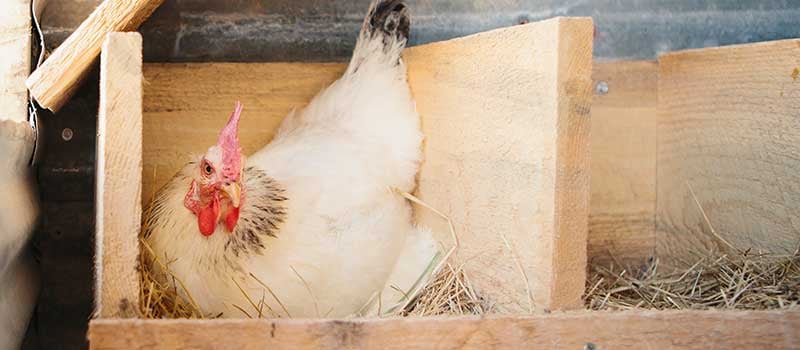What to Know Before Buying and Raising Backyard Chickens
by Dakota Storage Buildings, on August 03, 2021
Knowing these lesser-known facts could impact whether or not you want to own hens.
If you want to raise a small flock of backyard chickens for fresh eggs, there are things you'll want to know before you invest in a coop or egg-laying hens — especially lesser-known facts that are definitely important to know.
Facts You Should Know Before Getting Chickens
There is more to a chicken than meets the eye. Here's a list of some surprising facts about chickens that may either have you questioning your ambition to own hens or make you more confident. Learning all you can before diving into ownership will help you to set realistic expectations.

Fact 1. Check your town and municipality rules first.
Each town and municipality has its own rules about backyard chickens, ranging from how many are acceptable to own to whether roosters are allowed to which permits are required for chickens and chicken coops. Before you make any purchases, be sure to look into the laws where you live.
Fact 2. Hens don't need a rooster to lay eggs.
Your hens don't need a rooster to lay eggs. They'll lay eggs whether or not there's a male around. The eggs just won't be fertilized and will never develop into chicks.
Fact 3. Having the right size coop and number of nesting boxes is essential.
Your chickens will need a secure coop to lay their eggs and sleep in at night. You can build, buy, or repurpose a coop, but be sure to allow 3-5 square feet of floor space for each chicken. You will also need 8” of roosting bar per chicken and one nesting box for every 3-4 hens in which to lay their eggs.
Fact 4. Hens only lay for a few years.
With proper care and protection from predators, a chicken can live to be 10+ years old. However, she will only lay regularly for about 2-3 years. After that, her production will drop by about 20% a year until she stops altogether.
Fact 5. Hens don't lay year-round.
Although high-volume layers will lay an egg every day during the spring and summer months, no chicken lays year-round. Once the days get shorter in the fall, they will start molting, which means dropping their feathers and growing in new ones for winter. Most hens stop laying during the molt. Additionally, the shorter days mean they aren't getting the 14 hours of daylight needed to stimulate the ovaries. You can add light to your coop to keep your chickens laying through the winter, but that doesn't give their bodies a break.
Fact 6: Hens are usually done laying for the day by 10 AM.
Collecting eggs is best done in a timely fashion to avoid egg breakage and egg eating. Most hens typically finish laying their eggs by 10 AM, which means collecting eggs earlier in the morning is good practice to ensure egg quantity and quality.
Fact 7: Chickens may eat their own eggs.
Chickens are omnivores and eat just about anything, including fruit, vegetables, insects, and their own eggs. A chicken may seek out a supplemental diet of eggshells if calcium levels are low. Chickens may also eat their eggs due to accidental discovery. If a chicken coop is crowded, eggs can easily be broken. Once the egg is broken, the chicken may begin to eat the yolk and develop a taste for it.
Fact 8. Chickens get dirty to get clean.
To protect themselves from mites and clean their feathers, chickens take dust baths. They loosen up a patch of soil and form a pit, then they roll around in it, fluffing up their feathers. Once they’ve had enough, they hop out and shake off the loose soil.
Fact 9. Chicken breeds lay different colored eggs.
The color of chicken eggs depends on the breed of the chicken. Egg color does not determine the nutritional value or how natural or organic an egg may be. Some chickens, called Americana or Araucana, lay eggs in blue and green shades. Dark brown eggs are usually laid by Black Copper Marans. The large white eggs you typically find in a grocery store are generally laid by White Leghorns.
Fact 10. Hens have a language.
In the same way that a growling dog or purring cat conveys meaning, chickens make distinctive sounds. “I just laid an egg” is a discernibly different sound from “Get away from my food!” and “I am enjoying the sunshine.”
Fact 11. Flocks have a pecking order.
The term pecking order was coined to describe flock behavior. Every flock has a bird at the top and bottom, and every other chicken fits into that hierarchy. When a hen steps out of line, it can get a sharp reprimand by way of a peck by a higher hen. The order is established during mating season, times of stress, and the addition or loss of birds. Even though they have generous space both indoors and out, plenty of nest box space, and ample food supply, establishing a hierarchy is part of their nature.
Fact 12: It’s normal for chickens to lose their features.
Most chickens lose their feathers during their second autumn and every year after that. It’s a natural cycle called a molt. When they lose their feathers, they appear sick and seem miserable, but they always survive it. During molting, hens do not lay. This process is natural and is not due to illness or injury.
Fact 13. If you want to sell your chicken's eggs, check the law first.
If you are planning to sell eggs, be sure to check the Egg Laws in your state. Your local extension service or state university poultry department are good places to start. Each state has different rules governing how eggs must be handled and labeled in order to be sold.
Bonus Facts About Eggs
While the facts mentioned above could potentially impact your decision to buy and raise hens, here are a couple more bonus facts that are interesting and good to know.
Bonus: Eggs don’t need to be washed.
Commercial eggs are washed before being shipped to the grocery store, but eggs from your own flock shouldn’t be washed until you’re ready to use them. Every egg is laid with a transparent protective coating called the “bloom” that prevents air and bacteria from entering the egg through the pores in the shell. Washing removes that coating, so only rinse them under warm running water right before use.
Bonus: Eggs don’t need to be refrigerated.
As long as you haven’t washed your fresh-from-the-coop eggs, they don’t need to be refrigerated. The bloom helps keep the egg fresh, and it will still be safe to eat even after several weeks out at room temperature. An egg will keep longer in the refrigerator, though, so if you aren’t planning on eating your eggs fairly soon, chilling can be helpful.
Ready To Invest In Backyard Chickens?
Owning chickens seems like it should be pretty straightforward – and it is, but there are some things about chickens that many don't know. Now that you're armed with more information, are you ready to start raising backyard chickens?
For more helpful insights, including how to choose the right breed, how many chickens to get, what to look for in a coop, and more, download our free guide, The Beginner's Guide to Getting Backyard Chickens. And when it comes time to invest in a quality coop, be sure to explore our premium in-stock coop selection.
Sources:
- Top 10 Things You Should Know Before Raising Chickens
- 12 Backyard Chicken Facts You Might Not Have Known
- 11 Backyard Chickens Facts for Homesteading
- More chicken-related articles
About Dakota Storage Buildings
Our mission is to help you organize your life and keep your valued possessions safe — and yes, that includes your backyard chickens. We know chickens are an investment, and we want to help you keep them secure and happy.
When you purchase with us, you can trust that you’re getting a premium coop, a knowledgeable and experienced team of experts, above-and-beyond customer service, honest prices, and flexible delivery.




























